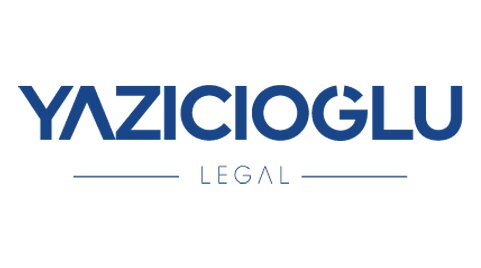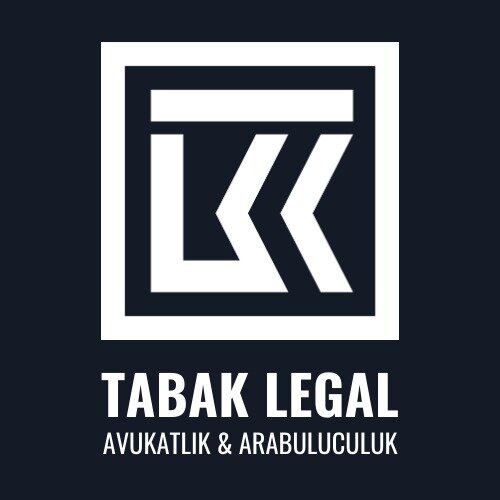Best Restructuring & Insolvency Lawyers in Istanbul
Share your needs with us, get contacted by law firms.
Free. Takes 2 min.
List of the best lawyers in Istanbul, Turkey
Legal guides written by Tekin Law Firm:
- Arbitration in Turkey
About Restructuring & Insolvency Law in Istanbul, Turkey
Restructuring and insolvency law in Istanbul, Turkey governs the processes that individuals and businesses follow when they are unable to meet their financial obligations. This area of law is shaped by the Turkish Commercial Code and the Execution and Bankruptcy Law, providing options for debtors and protection for creditors. Istanbul, as Turkey's largest commercial hub, is host to numerous domestic and international businesses, making restructuring and insolvency cases quite common and often complex. These laws are designed to enable either the rehabilitation of distressed entities or the fair distribution of assets in the event of insolvency.
Why You May Need a Lawyer
Seeking professional legal assistance is crucial when dealing with restructuring and insolvency issues. Here are some common situations where you should consult a lawyer:
- Your business is facing cash flow problems and cannot pay debts as they fall due.
- You are a creditor whose debtor is insolvent and you wish to protect or recover your claims.
- You need to negotiate with creditors or seek court approval for a concordat (court-approved debt settlement agreement).
- You are concerned about personal liability as a company director or manager.
- You need guidance regarding asset protection or restructuring options to save your business.
- You are facing potential bankruptcy proceedings, either voluntary or involuntary.
- You wish to understand the legal consequences of insolvency for employees, suppliers, or contractual obligations.
Local Laws Overview
In Turkey, restructuring and insolvency proceedings are mainly regulated by the Turkish Execution and Bankruptcy Law (EBL) and the Turkish Commercial Code. The EBL sets out the procedures for conventional bankruptcy, restructuring through settlement (concordat), and reorganization.
Key aspects include:
- Concordat (Konkordato): A legal process where a debtor seeks protection from creditors while agreeing on a payment plan to handle debts and potentially avoid bankruptcy.
- Bankruptcy (İflas): If restructuring or concordat is not possible, bankruptcy proceedings can be initiated by creditors or the debtor. Assets are liquidated to pay creditors according to a legally defined order.
- Company Reorganization: Corporate restructuring may involve mergers, demergers, transfer of assets, or operational changes to ensure business viability.
- Creditor Protections: Creditors can take various actions including initiating bankruptcy, participating in creditors' meetings, and submitting claims during insolvency proceedings.
- Debtor Protections: Temporary relief measures such as suspension of bankruptcy or legal actions during concordat allow debtors time to reorganize.
- Court Jurisdiction: The Commercial Courts of First Instance in Istanbul handle restructuring and insolvency matters.
Frequently Asked Questions
What is the difference between restructuring and bankruptcy in Turkey?
Restructuring involves reorganizing a company's debts and assets to restore financial health, often allowing the business to continue operating. Bankruptcy, on the other hand, is the legal process of liquidating a company's assets to pay creditors when the business cannot be saved.
How does the concordat process work in Istanbul?
A debtor applies to the Commercial Court for concordat protection, proposing a payment plan. If the proposal is accepted by creditors and approved by the court, the debtor is protected from enforcement actions while carrying out the plan.
Who can initiate bankruptcy proceedings?
Bankruptcy proceedings can be initiated by the debtor, creditors, or in certain cases, the public prosecutor’s office if there are legal grounds.
Are directors personally liable for company debts in insolvency?
Directors are generally not personally liable unless they have acted unlawfully, fraudulently, or negligently contributed to insolvency. Consulting a lawyer is vital for understanding specific liabilities.
Can individual debtors apply for restructuring?
While most restructuring mechanisms are designed for businesses, individuals with commercial status (such as sole traders) may also apply for certain restructuring solutions, including concordat.
What happens to employees if a company goes bankrupt?
Employees' claims such as unpaid salaries and severance are considered privileged debts and are paid from the proceeds of the liquidation before most other creditors.
How are creditors ranked in bankruptcy proceedings?
Creditors are paid according to a statutory order: secured creditors, privileged creditors (including employees), then unsecured creditors. If there are insufficient funds, lower-ranked claims may not be fully paid.
How long do insolvency proceedings usually take in Istanbul?
The duration depends on the complexity of the case, but concordat proceedings usually take several months, while bankruptcy processes can take a year or more if contested or complex.
Can foreign creditors participate in insolvency proceedings in Istanbul?
Yes, foreign creditors have the same rights as Turkish creditors to participate in insolvency proceedings, submit claims, and vote in creditors' meetings.
Is it possible to challenge the decisions made in insolvency or restructuring proceedings?
Most court decisions in these proceedings can be appealed to higher courts in Turkey. Consultation with a lawyer is necessary to evaluate the grounds for an appeal.
Additional Resources
If you need more information or assistance regarding restructuring and insolvency in Istanbul, consider these resources:
- Istanbul Bar Association (İstanbul Barosu) - Offers legal guidance and lawyer referrals.
- Union of Turkish Bar Associations - Provides country-wide legal resources and information.
- Ministry of Justice of Turkey - Oversees registry and administration of bankruptcy and concordat cases.
- Commercial Courts of First Instance in Istanbul - The official authorities handling insolvency cases.
- Professional insolvency and restructuring advisors and associations in Turkey.
Next Steps
If you are facing financial difficulties or are involved in a restructuring or insolvency situation in Istanbul, consider taking the following steps:
- Document your financial situation, debts, and any relevant agreements.
- Contact a qualified restructuring and insolvency lawyer to evaluate your options.
- Consult with financial and legal professionals before making any restructuring, negotiation, or court applications.
- Stay informed about your rights and obligations under Turkish law.
- Respond promptly to court notices or correspondence from creditors to protect your interests.
Navigating restructuring and insolvency can be complex, but seeking early legal advice can improve outcomes for both debtors and creditors in Istanbul.
Lawzana helps you find the best lawyers and law firms in Istanbul through a curated and pre-screened list of qualified legal professionals. Our platform offers rankings and detailed profiles of attorneys and law firms, allowing you to compare based on practice areas, including Restructuring & Insolvency, experience, and client feedback.
Each profile includes a description of the firm's areas of practice, client reviews, team members and partners, year of establishment, spoken languages, office locations, contact information, social media presence, and any published articles or resources. Most firms on our platform speak English and are experienced in both local and international legal matters.
Get a quote from top-rated law firms in Istanbul, Turkey — quickly, securely, and without unnecessary hassle.
Disclaimer:
The information provided on this page is for general informational purposes only and does not constitute legal advice. While we strive to ensure the accuracy and relevance of the content, legal information may change over time, and interpretations of the law can vary. You should always consult with a qualified legal professional for advice specific to your situation.
We disclaim all liability for actions taken or not taken based on the content of this page. If you believe any information is incorrect or outdated, please contact us, and we will review and update it where appropriate.

















